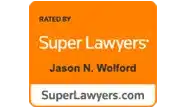Oakland Tenant Law
Oakland Tenant’s Rights Attorneys
Oakland tenants have many of the same tenant’s rights as tenants living in San Francisco. However, there are key differences that Oakland tenants need to be aware of. Oakland has its own Rent Ordinance, Measure EE.
Be sure to consult with an attorney or tenant’s rights advocate to understand how these rules apply to your housing situation.

over
35
years of experience in representing tenants.
What Are My Rights as an Oakland Tenant?
The laws are constantly changing and can be quite complex. Pursuant to the Oakland Ordinance and similar to San Francisco, landlords can only evict tenants living in a rent ordinance protected unit for one of eleven reasons or “just causes.” Before a landlord can evict a tenant they must provide them with a notice and allege one or more “just causes.”
Oakland Rent Adjustment Program (RAP)
Just Causes for Eviction in Oakland
Oakland Rent Adjustment Program (RAP)
The RAP covers all properties utilized for residential rental housing. However, there are several exceptions. These exemptions include but are not limited to:
- Units subsidized by federal or local government;
- Units built after January 1, 1983;
- Single-family homes and condominiums exempt under the Costa Hawkins Rental Housing Act (Cal. Govt. C. §1954.50, et seq.).
Just Causes for Eviction in Oakland
In the City of Oakland, landlords can only evict tenants living in a rent ordinance protected unit for one of eleven reasons or “just causes.” Before a landlord can evict a tenant they must provide them with a notice and allege one or more “just causes. These are as follows:
- Failure to pay rent;
- Breach of a material lease term;
- Refusal/failure to sign a materially similar or identical lease upon expiration of the existing lease;
- Waste/damage: where a tenant has substantially damaged the unit and refused to stop damaging it or repair;
- Nuisance;
- Illegal use;
- Refusing to allow a landlord access as required by state law;
- Owner Move-in Eviction* where owner seeks in good faith, without ulterior motive to occupy the unit as their principal residence where he or she has previously occupied the rental unit as his or her principal residence and has the right to recover possession for his or her occupancy as a principal residence under a written rental agreement with the current tenants.”
- Owner or relative Move-in Eviction*
- Ellis act eviction*
- Temporary eviction for substantial repairs*
*Just causes 8, 9, 10, 11 are considered no-fault evictions
Navigating the Eviction Process in Oakland, California
If your landlord claims just cause for eviction, it marks the beginning of a formal process that must be meticulously followed before you can be legally removed from your residence. Here’s an overview of the eviction process your landlord must follow if you are renting in Oakland:
- Issuance of Eviction Notice
The process begins when your landlord gives you a written eviction notice. The length of notice depends on the grounds cited for eviction. For issues like non-payment of rent, lease violations, or unlawful activities, a three-day notice is required. Conversely, no-fault evictions, such as an Owner Move-in, necessitate a sixty-day notice period. - Decision During Notice Period
After receiving an eviction notice, you have several options: you can vacate the property, rectify the issue if the notice allows for it (“cure” the violation), or remain in place. The best course of action will depend on your specific circumstances. - Filing an Unlawful Detainer
If issues like unpaid rent aren’t resolved, or if the tenant remains past the notice period without curing the violation, the landlord can proceed to file an eviction lawsuit, known as an Unlawful Detainer. - Service of Summons and Complaint
The next step involves the tenant being served with the summons and complaint once the landlord initiates the eviction lawsuit. - Tenant’s Legal Response
You have five calendar days to respond to the lawsuit, typically by filing an Answer. Failure to respond can result in a default judgment in favor of the landlord. It’s important to note that weekends and public holidays might affect this timeframe. - Court Proceedings
If you submit an Answer, the court will schedule a trial date along with a mandatory settlement conference. If a settlement isn’t reached, the court will decide through a jury or bench trial whether the eviction will proceed. - Appeal Process
You can attempt to delay or overturn the eviction by appealing the court’s decision, though this doesn’t automatically halt the eviction process unless a stay is granted. - Writ of Possession and Lockout
Should the landlord prevail, they will receive a Writ of Possession from the court, granting you a few days to vacate voluntarily. If you don’t leave, the sheriff will issue a final notice and then perform a lockout, physically removing you from the property.
Understanding Wrongful Evictions in Oakland
Wrongful evictions are distinct from lawful ones and often involve a landlord removing a tenant without adhering to the proper legal steps or just cause criteria. Common unlawful eviction tactics include landlords making fake owner move-in claims, evicting without proper notice, or not using the property as their primary residence after eviction.
- Why Do Wrongful Evictions Happen?
Reasons for wrongful evictions range from financial incentives in rent-controlled areas, to ignorance of legal responsibilities, retaliatory motives, or discrimination. It’s crucial for tenants to recognize these illegal practices.
Legal Recourse: If you suspect a wrongful eviction, it’s essential to consult with a lawyer for renters in Oakland. An experienced attorney can help you understand your rights and potentially contest the eviction, ensuring you’re not unjustly displaced from your home.
Get Started
For more information or to discuss your legal situation, call us today at (415) 649-6203 for a phone consultation or submit an inquiry below. Please note our firm can only assist tenants residing in San Francisco, Oakland & Berkeley.














